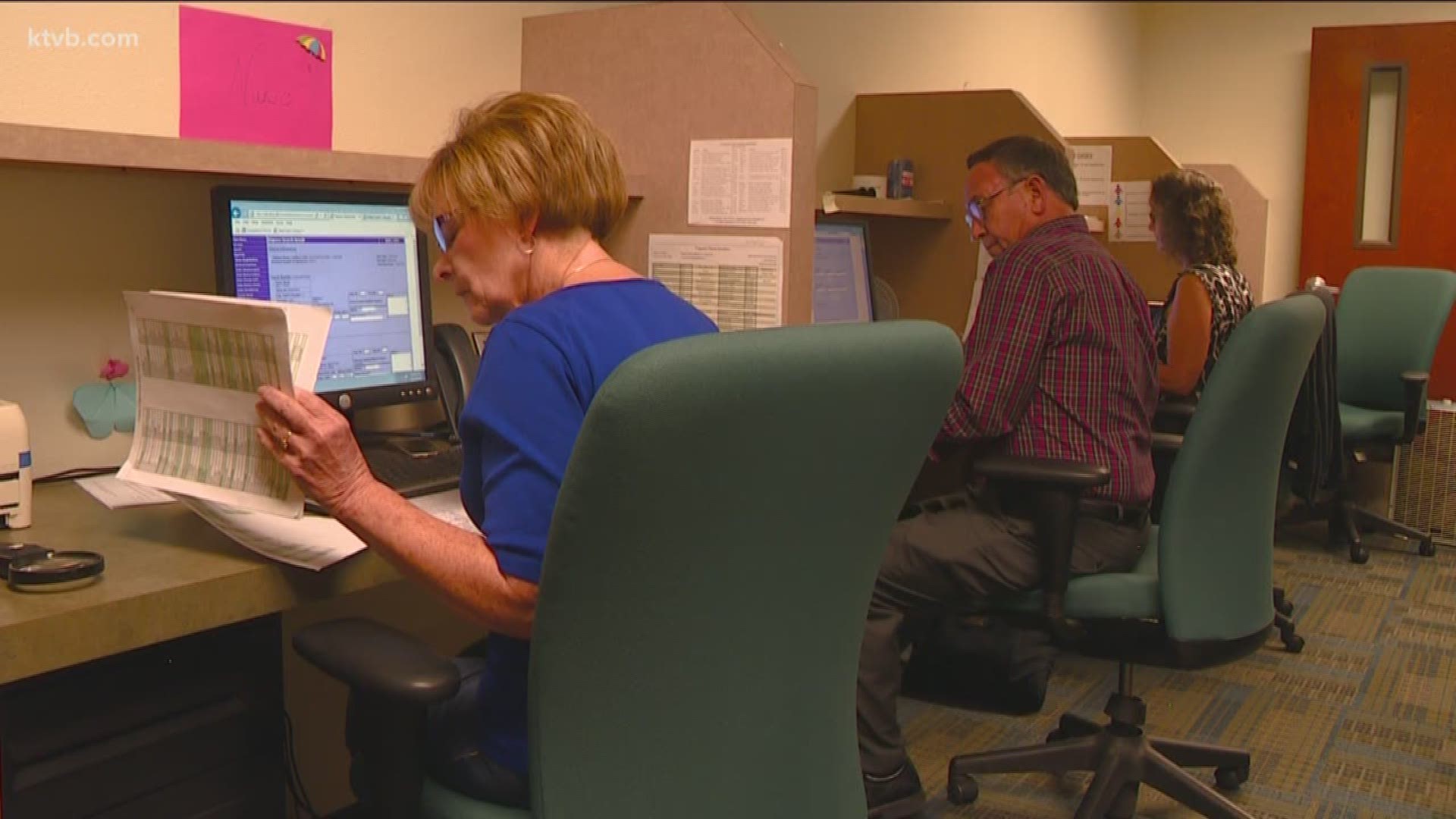BOISE - Many registered voters who signed their names on petitions are eagerly waiting to find out if the ballot initiative they support has gathered enough valid signatures to make the November ballot.
Two much-talked-about petitions that circulated this spring include Medicaid expansion and horse racing.
But how are signatures verified as legitimate to get those issues to a general election vote?
The process behind verifying signatures is extensive and takes a lot of time.
Statewide, county clerks and their staff have to go through every single signature on every single petition to make sure the entry is authentic and eligible for the petition.
Ada County Chief Deputy Clerk Phil McGrane explains that the process takes thousands and thousands of hours.
"One of the things that most people, just Average Joe Citizen doesn't know, we verify every single signature on a petition," said McGrane.
To make sure signatures on ballot initiative petitions are legitimate, every year county clerks offices all over Idaho compare signatures and voter information on petitions to voter registration databases to make sure all the information lines up.
But the truth is, a lot of signatures are not accepted
"About 50 percent of signatures get rejected, for one reason or another," said McGrane.
McGrane says some big reasons why signatures are rejected is because the person signing isn't registered to vote, they put down a different address than they are registered at, or they sign a petition that isn't from their county.
There are times where people fake a signature, but McGrane says staffs across the state are trained to look out for certain things.
"If we are going to reject a signature, we have multiple eyes look at it and our full-time staff has actually done training from law enforcement on what are the things to be looking for when we are validating signatures so we don't erroneously reject one," said McGrane
As you would imagine, the process takes a lot of time and meticulous work.
McGrane says each petition page takes about 15 minutes to process, and with both the Medicaid and horse racing campaigns this year bringing in about 5,000 pages each, the process statewide is expected to take a total of 18,000 man-hours.
"It's one of the main reasons we have had to staff up and add additional staff just for the purpose of verifying the signatures, and I know other counties have had to do the same," said McGrane.
So with all that said, what does a petition campaign have to do to make the ballot?
In Idaho for a statewide petition, campaigns need to gather 56,192 valid signatures.
Petitions also need to have 6 percent of voters sign the petition from at least 18 different legislative districts.
Meaning, a petition can't for example just rely on getting signatures in a heavily populated area like Ada County.
As the verification process comes to an end at the end of the month, a big question clerks' offices will be faced with is fraud.
McGrane says it does happen from time to time but is not very common.
Again, to ensure the process is legit, every single signature is checked, no matter the name signed on the form.
"If we recognize Mickey Mouse, we probably know we are not going to find him in the system, but we will check just in case," said McGrane.
The entire process will be finalized later this summer.
Every county clerk will send their verification documents to the secretary of state's office, and from there, the secretary of state will determine if an initiative makes the ballot or not.
An update on the top two petitions in Idaho.
As of now, it looks like the Medicaid petition is a safe bet in terms of getting enough signatures, the only hang up would be meeting the 6 percent signature mark in 18 districts.
The horse racing initiative meanwhile is too close to call, preliminarily numbers show it will be very close to make the 56,192 valid signatures needed.

